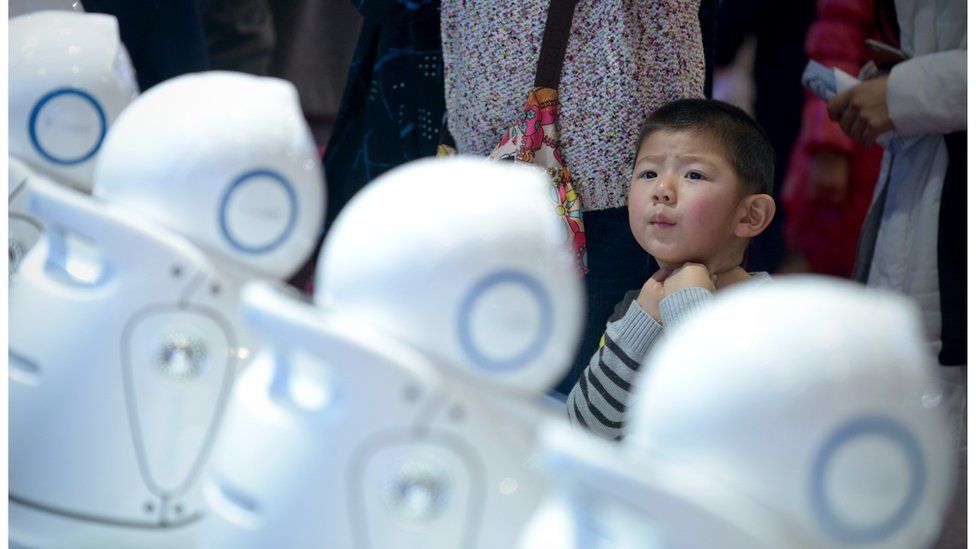China robot event showcases service, sport and dancing robots
- Published

The World Robot Conference in Beijing has drawn big crowds to its showcase of "jiqiren", or "machine people", in Chinese.
The country still has a long way to go until it catches up with Japan, among others, but on the evidence of the conference, it is only a matter of time before robots are cooking us dinner and cleaning up afterwards too.
China is already the world's biggest market for industrial robots, according to the International Federation of Robotics.
But many analysts at the conference said the future lay with "service robots", helping out around the home and office.
Robot waiters are already a popular draw at some restaurants and tourists sights in China.
In a world of declining birth rates, robots could increasingly keep the young, and old, company.
But despite rapid catch-up, China still lags far behind Asian robot giants Korea and Japan.
The conference also hosted discussions on the opportunities - and perils - of artificial intelligence.
Robotics expert Toshio Fukuda, from Japan's Nagoya University, laughed when asked about the possibility robots might one day become our masters.
"Maybe in 30 or 40 years," he said. "But I'm not worried. I won't still be alive."
- Published14 September 2015
- Published13 December 2014
- Published22 April 2014
- Published24 September 2015